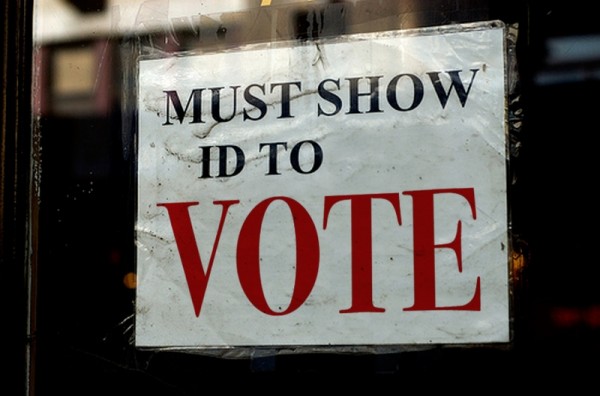Obtain Voter ID: The Fifth Wednesday of Any Month


The United States has some of the lowest voter turnout and voter participation rates of any industrialized country in the world. Low voter turnout is typically ascribed to voter ignorance and apathy or to the lack of choice in our two-party dominated political system.
Another factor is what we might call the “busy work” burden imposed on voters by government regulations. In order to vote, individuals must register to vote with their state's board of elections according to an arbitrary time-table, and in many states they must also obtain some form of government identification in order to be able to cast a valid ballot at the polls.
Ironically, laws such as the so-called Motor Voter Act were intended to make the process of registering to vote more easy by allowing eligible individuals to register to vote at one of the most despised government offices in the country, the Department of Motor Vehicles, an office which is, of course, virtually synonymous with inefficiency and incompetency in the national imagination.
A new study by the Brennan Center provides a comprehensive look at the difficulties faced by individuals who lack the proper government photo identification to cast a ballot in ten different states: Alabama, Georgia, Indiana, Kansas, Mississippi, Pennsylvania, South Carolina, Tennessee, Texas and Wisconsin.
Those of us who have become habituated to having to show our papers in order to complete the most mundane everyday tasks, such as entering a building, may find it hard to believe that there are many individuals who lack such identification. Yet this is the case for no less than 11% of eligible voters.
Among certain demographics, the percentage is even higher. According to the Brennan Center study, 25% of African Americans, 16% of Hispanics and 18% of senior citizens lack government issued photo identification.
It stands to reason that individuals who do not have a photo ID such as a driver's license probably also do not have a car, making it much more difficult and time-consuming to make one's way to a government ID-issuing office.
In the ten states considered by the study, it was found that more than 10 million eligible voters, including 1.2 million below the poverty line, live more than ten miles from the nearest government office that issues identification. Of these individuals, nearly 500,000 do not have access to their own vehicle, forcing them to rely on others or on public transportation to visit a government office to obtain their photo identification.
To obtain that identification, the state office must of course be open. The Brennan Center found that many ID-issuing offices have highly restricted or irregular hours of operation.
In Wisconsin, Alabama and Mississippi, less than half are open five days a week. No such offices are open on Saturdays in Alabama, Kansas, Mississippi, Texas and Wisconsin. And none are open on Sunday in any of the ten states considered in the study.
The study also found evidence of absurdly “idiosyncratic” hours of operation. The office in Sauk City, Wisconsin, for instance, is only open on the fifth Wednesday of any month, which means that it is only open five days a year. Offices in other states were found to be open just one day a month.
Supporters of voter ID laws claim such regulations are necessary to protect against widespread voter fraud. In the end, they may do nothing more than protect against widespread voter registration.



